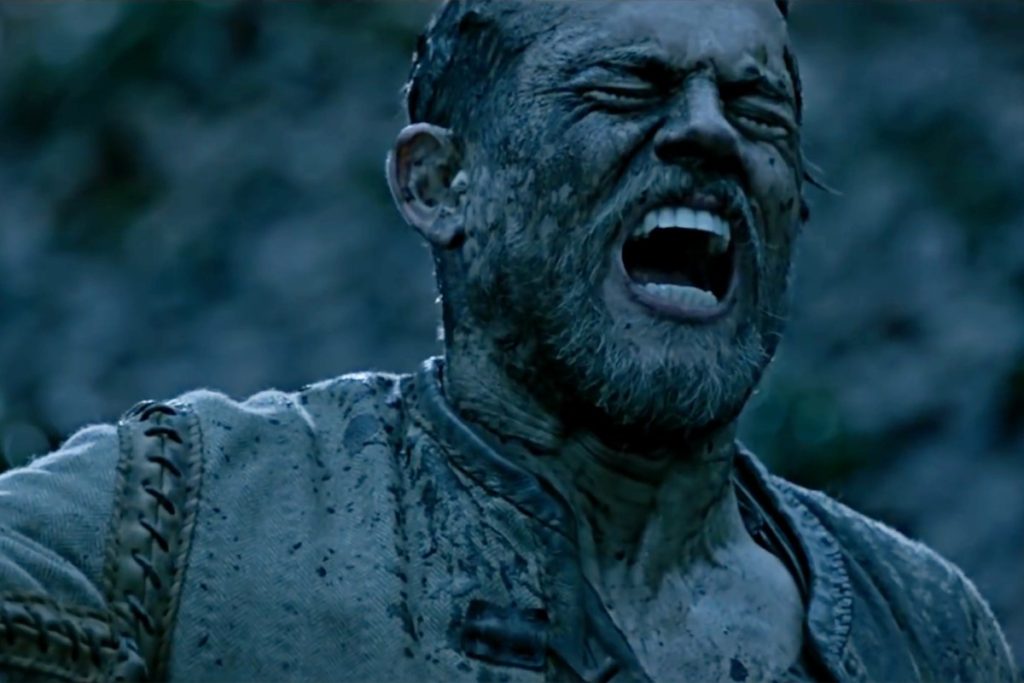It doesn’t matter how energetic or stylish a filmmaker you are, a bad idea is a bad idea; and King Arthur: Legend of the Sword is a truly awful idea.

King Arthur: Legend of the Sword is the kind of film where you leave the theatre buzzing with questions, chief among which are “why did anyone think this was a good idea?”, “does that person still have their job?” and “if so, why?”.
Of course, even the most uneven of adventures can be saved by their heroes and it is truly staggering how uncharismatic Charlie Hunnam is in the lead role. I don’t know much about him, and I’ve never considered him to be a bad actor (he recently gave a very good performance as the lead in James Gray’s The Lost City of Z), but if I wasn’t already aware of the fact that Hunnam was born and bred in the north of England then, based solely on his performance, I would have assumed that English wasn’t his first language.
Guy Ritchie’s vision of King Arthur, one of the most seminal characters in the history of fiction, is a sexy blank slate street hustler who’s been trained in martial arts but has no personality, comedic timing, leadership skills, motivation or discernable morality.
You can see Ritchie trying to force a point in about diamonds emerging from the rough. A more apt analogy would be that old chestnut about polishing a turd. If you had to describe the visual aesthetic of the film it would probably be something in the same vein as “two hour long energy drink commercial”, in which David Beckham probably gives the best performance. Which is not a compliment. Not that morality, performances or aesthetics are something that you worry about much when all of your mental effort is going into trying to figure out what’s going on in the plot.

It’s been done before to many legends, including this one, but the rebranding of a cultural icon has never fallen quite as flat as it does here. King Arthur: Legend of the Sword is an overly complicated, and often unbearable, slog through mismatched designs and clunky set pieces.
If you listen hard enough throughout the film you can hear the haunting echoes of the pitch meeting where somebody half-heartedly dished out the same old dross about “a new twist on a classic recipe” and “old characters with a modern feel”. There’s nothing inherently wrong about trying to revamp a tried and tested idea but you don’t have to be an expert in Arthurian legend to see that there is something fundamentally broken about King Arthur: Legend of the Sword.
As sad as it is that original ideas are seen less and less these days, investing in pre-existing intellectual properties is something that makes sense even from a creative standpoint. It’s easier to work with a dynamic that you already know will be well-recieved by your audience.
Ritchie’s previous hit action adaptation, the eccentric Sherlock Holmes, and his more grounded companion, Dr Watson, work together. You wouldn’t assume that a billionaire who dresses up like a bat and a young boy in green underwear would be that great of a team, but they are; and once you know that your lead characters have a solid chemistry you can focus on your story instead. King Arthur: Legend of the Sword throws the proverbial baby out with the bathwater. The basic structure that has made the story work for as long as it has isn’t just reshaped, it is pummeled into an unrecognisable lump.

I’d happily call Guy Ritchie a great director, and I eagerly look forward to his future work, but King Arthur: Legend of the Sword is a worrying step towards self-parody from him. His trademark of editing his scenes into a non-chronological order for the sake of a dramatic reveal is used, what feels like, every five minutes or so throughout the film and it never has a purpose.
For some utterly bewildering reason the entire film plays itself out as if the course of events is unpredictable and tense. Obviously, nothing could be further from the truth. Scenes with self-evident outcomes are revisited over and over again, withholding information that is either of no consequence or of no interest, hinging themselves on your investment in a swathe of characters with interchangeable personalities, and underdeveloped motivations, whose names you cannot remember. Lancelot, Guinevere and Merlin were all apparently too boring for this story.
Jude Law’s villain is a villain for no other reason than that the plot requires one and, with almost nothing to work with, much like Hunnam he spends the entire film looking like he just wants to go home. A feeling which becomes increasingly mutual as the film goes on.
I am becoming steadily convinced that major media conglomerates keep their treatments for both feature films and video games stored in the same room, stacked into piles which are occasionally knocked over, allowing them to be accidentally switched and handed to the wrong development team. It’s very hard to see what part of it you’re meant to enjoy as a viewer. The story is unengaging, the action indecipherable, the soundtrack incongruous and the cast unmemorable. Put the sword back in the stone because this king is not worthy of it.
King Arthur: Legend of the Sword is out now in cinemas.

